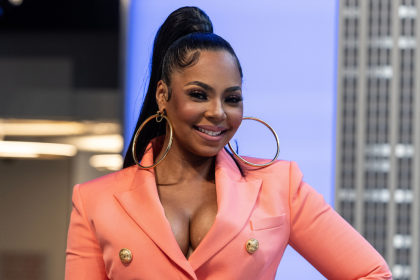
The Original Badass: Melvin Van Peebles On Black Cinema and Why He Won’t Discuss Tyler Perry and Spike Lee
It’s a beautiful afternoon on Chicago’s South Side and Melvin Van Peebles is cranky. In a few hours the 76 year-old filmmaker and father of the blaxploitation film movement will be showing his latest work, Confessionsofa Ex-Doofus-ItchyFooted Mutha. Midway through the interview, the adroit older man wearing patent-leather pants, red and black sneakers, topped off with a watermelon-decorated sport coat is already directing traffic.
“Close that f*****g door,” Van Peebles barks in the direction of people constantly moving in and out of his press room. “We’ve got to be pro about this, let’s go.”
Quickly you realize that with every order he gives – including where his interviewer should be positioned and how he should go about asking his questions – this man was born to direct, born to compose music, born to breathe life into aspects of the world most of overlook. In this candid interview, Rolling out sat down with the legend to discuss his opening the door for black cinema, the difference between Tyler Perry and Spike Lee and why the world of hip-hop owes him a pat on the back. –gavin philip godfrey
Everyone likes to say Melvin Van Peebles birthed blaxpoitation films. What do you think was your role in bringing black cinema to the mainstream?
Back in the day, that was when the important thing was done, but until Sweet Sweetback’s Baadasssss Song made all of this money as an independent film and a black independent film, none of these things had actually happened. It’s hard to say what your latest contribution is or your earliest contribution. I think the money that I’ve made and the start of a whole genre of film – independent film – was never really taken serious before Sweetback and African-American cinema was just off the charts, but when I showed that it was possible and there was an audience for real stories, then that made a major change.
Speaking of real stories, why do you think the black community is quick to invest in Tyler Perry, but not Spike Lee?
That’s a question I never discuss. I’m here as the pioneer filmmaker, etc. not to have a dissertation on the various possibilities of this versus that. I have enough trouble coming from the toilet with my pants leg dry without dissertating on what I don’t know. There’s an old saying, someone said, “Blessed he who doesn’t know and can’t be persuaded to say it.” I’ve got to take the fifth on that.
You’re making a hip-hop album with Madlib, what is it about today’s hip-hop culture that inspires you?
I think you have it ass-backwards – I inspired hip-hop culture. Before the albums that I did on A&M, … after that you had the advent, and then it was moving along and along.
Describe this latest film as it relates to the story of your life and film career
The whole movie is like in [Sweet] Sweetback’s Badass Song. The Confessions of an Ex-Doofus mother — than runs it all down — you either speak the language or you don’t. If you don’t understand it, well, go ask your momma.
For young black fillmakers what can they take from your story as a key to their own success in the industry?
It’s not a one-[size]-fits all title. It would be a disservice to say to this guy do that, [and] to the other guy do that – each one has his style, but the overriding [thing] — not just for black people, but filmmakers, carpenters [and in] everything else — keep on keeping on. Remember the deal is, it’s not how many times you get knocked down, its how many times you get up.







